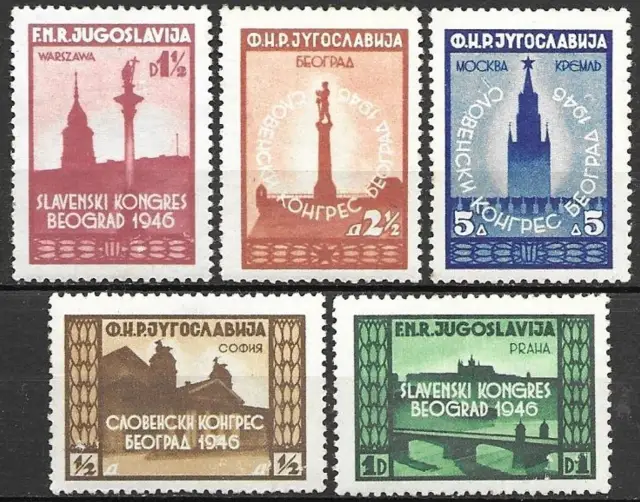Serbia year 1999 stamps Black and Red Target NATO bombing full set
The NATO bombing of the Federal Republic of Yugoslavia, which included Serbia, occurred in 1999 as part of the Kosovo War. This military intervention by NATO (North Atlantic Treaty Organization) was a response to the Yugoslav government’s crackdown on Albanian separatists in Kosovo, a province of Serbia.
Here are key points about the NATO bombing campaign:
- Background: The Kosovo War erupted in 1998 when the Kosovo Liberation Army (KLA), an ethnic Albanian separatist group, began an armed insurgency against Yugoslav security forces in Kosovo. The conflict escalated, leading to widespread violence and human rights abuses.
- NATO Intervention: As the situation in Kosovo deteriorated and reports of atrocities against civilians emerged, NATO began airstrikes against Yugoslav military and strategic targets on March 24, 1999. The bombing campaign lasted for 78 days until June 10, 1999.
- Objectives: NATO’s primary objectives were to halt the ethnic cleansing of Albanians in Kosovo, force Yugoslav President Slobodan Milosevic to withdraw his forces from Kosovo, and pave the way for the return of refugees under the protection of an international peacekeeping force.
- Impact: The NATO bombing campaign caused significant damage to Yugoslavia’s infrastructure, including military facilities, government buildings, bridges, and industrial sites. Civilian casualties also occurred, leading to controversy and criticism of NATO’s tactics.
- Resolution: The bombing campaign ended with the signing of the Kumanovo Agreement on June 9, 1999, which called for the withdrawal of Yugoslav forces from Kosovo and the deployment of a NATO-led peacekeeping force known as KFOR (Kosovo Force). The agreement paved the way for the return of Albanian refugees and the establishment of United Nations administration in Kosovo.
- Aftermath: The Kosovo War officially ended with the adoption of United Nations Security Council Resolution 1244, which placed Kosovo under interim UN administration and affirmed its status as a part of the Federal Republic of Yugoslavia pending a final settlement.
The NATO bombing of Serbia in 1999 remains a contentious and debated topic, with differing views on its legality, effectiveness, and humanitarian impact. While some argue that the intervention was necessary to prevent further atrocities in Kosovo, others criticize NATO’s actions as an infringement on Yugoslavia’s sovereignty and question its long-term consequences for regional stability.









Reviews
There are no reviews yet.